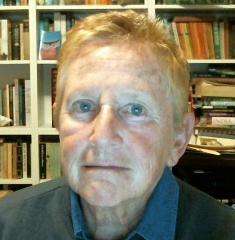Launceston is Tasmania’s second city, and this is the first opera I have attended there. The charming Princess Theatre dates to 1911 and was originally a cinema, but it now plays hostess to a variety of musical and theatrical experiences. This production of La Cenerentola was brought over from Melbourne by the Victorian Opera, but the venerable Tasmanian Symphony Orchestra provided the accompaniment.
Somewhat confusingly described by director Elizabeth Hill-Cooper in the program as a “staged concert version”, the more obvious term would be “semi-staged”. There being no pit, the orchestra was arrayed on the stage, and the action took place in the narrow space in front of it, with minimal props. This worked very successfully however, with a dramatically talented cast of singers bringing the familiar story to entertaining life. Costuming (presumably down to the director) was basically eighteenth century without the wigs, with Angelina transformed from drab grey to glittering blue and gold for the ballroom scene, and the transition from valet to prince effected by removing or donning a frock coat.
There was no stinting on musical values, with few discernible cuts; singing was in Italian, with English surtitles on a screen at the back of the stage. Richard Mills, current artistic director of Victorian Opera, conducted the TSO with lively attention. Somewhat exaggerated tempi in the overture – slowing right down for the turns and speeding up on the straight – were not so evident subsequently, but a brisk momentum was maintained throughout, and the singers were always clearly audible. The collectively unnamed chorus of six male voices was excellent and moved tidily about in the restricted space. All the great ensemble pieces were perfectly delivered, vocally and physically.
The previously announced Anna Goryacheva was replaced by another Russian mezzo-soprano, Margarita Gritskova, and she was an unmitigated delight from her first full-throated note. A rich mellow voice, even across its range, allied with a beguiling stage presence, she made every intricate note count. “Nacqui all’affano…Non piú mesta” was effortlessly rendered, accompanied by bodily twirls on the concluding roulades. She was well partnered with Turkish tenor Mert Süngü, who would seem to be something of a bel canto specialist. His pleasingly plangent tones and perfect breath control were heard to advantage in “Sì, ritrovarla io guiro” and throughout.
Teddy Tahu Rhodes doesn’t have quite the deeply resonant bass he once did, but he displayed great comic chops as Don Magnifico. The duet with Dandini (“Un segreto d’importanza”) was delightful, the latter being well sung by young Australian baritone Stephen Marsh, with a couple of minor intonation lapses. Tasmanian native Michael Lampard impressed as Alidoro, and the mean girl sisters were deliciously wickedly performed by Rebecca Rashleigh (Clorinda) and Shakira Dugan (Tisbe). The performance was warmly received by the packed house, and it seems a pity there was only the one.




